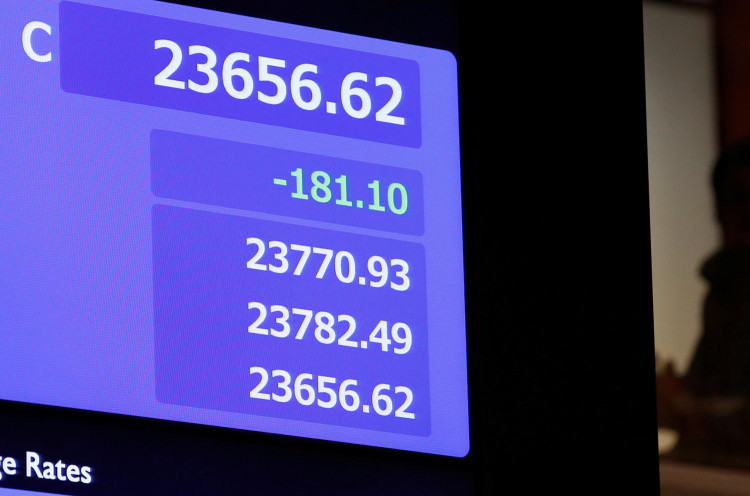Asian shares kicked off the new year with fresh vigor and on record highs bolstered by Chinese markets after Beijing eased monetary policy to support slow growth.
Investors also cheered news that soon after a year of volatile negotiations between the two largest economies in the world, China and the United States will ink a trade pact.
After rising 5.6 percent in December, MSCI's broadest index of Asia-Pacific shares outside Japan increased by 0.35 percent in morning trading.
United States President Donald Trump said on Tuesday that the White House and his team of economic experts would be signing Phase 1 of the trade deal with China on January 15, although doubt still surrounds the details of the deal.
Rising hopes for a China-U.S. trade war resolution helped propel global equities to record highs late last year and depress the U.S. dollar's value.
On December 27, MSCI's all-country world stock index in 49 nations reached an all-time high of 567.80. It was last quoted at 565.46, down from that peak by 0.41 percent.
In China, in early trade, the blue-chip CSI300 index, one of last year's best-performing indices worldwide, was 1.34 percent higher.
On Wednesday, China's central bank will cut the amount of cash that banks have to keep as reserves, releasing around 800 billion yuan in funds effective Jan. 6.
According to former Nomura analyst Jim McCafferty, traders don't think the financial dimension is that "important in terms of what it means to the companies."
"But, for the consumer's point of view, then obviously if there's easy money and... people can borrow cheaply, repay debt easily, that's going to help the economy and businesses, of course."
McCafferty said he expects a memory up-cycle and new smartphone growth that could help lift tech-heavy markets such as Korea and Taiwan this year as a result of the introduction of 5 G mobile technology.
Australian shares flicked between minor gains and losses, last up 0.2 percent. Seoul's Kospi began the year down 0.86 percent, while Taiwan's shares gained 0.5 percent.
In currency markets on Thursday, as investors bet on a better outlook for global growth and trade, the dollar continued to weaken slightly against major peers.
At 108.64, the dollar was 0.06 percent weaker than the Japanese yen, while the euro was 0.11 percent lower at 1.1222. The dollar index, which measures the greenback against a six rivals, has remained nearly flat, just inching 96,427 by 0.04 percent.





